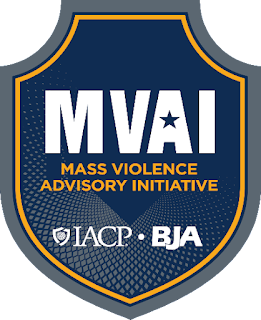These acts of mass violence also pose unique challenges for law enforcement leaders. For first responders and city leaders, responding to these incidents while operating under extreme pressure and public scrutiny may be one of the most difficult experiences of their careers.
The Department of Justice announced recently that it has started offering help to law enforcement leaders whose communities experience incidents of mass violence in their jurisdictions. The assistance, called the Mass Violence Advisory Initiative (MVAI), will involve peer-to-peer consultations and be funded by the Office of Justice Programs’ Bureau of Justice Assistance (BJA).
The International Association of Chiefs of Police (IACP) will help manage the initiative, and the BJA/IACP Mass Violence Peer-to-Peer Advisory Team consists of law enforcement officials, public information officers, psychological services, as well as community and faith-based representatives who have responded to similar incidents in the past. The team will deploy to provide immediate and ongoing guidance at no cost to the community.
The IACP and BJA recognizes that due to the complex, unique, and urgent nature of these events, law enforcement leaders responding to mass violence incidents will benefit from the knowledge of other law enforcement personnel who have experienced a similar incident.
This initiative’s goals are to:
- Help law enforcement leaders at the onset of a mass violence event to maximize the safety and wellness of the first responders and the community.
- Advise first responders by sharing promising practices for communicating with community members and the media as well as connecting law enforcement leaders with local, state, and federal partners.
- Address the mental wellbeing of victims, survivors, and responding agencies.
- Provide access to specialized resources, such as guidebooks, checklists, and toolkits to assist them in the aftermath of an incident.
The IACP has also compiled a list of resources that are available for communities to prepare for and respond to incidents of mass violence. These resources include a toolkit for enhancing law enforcement response to children exposed to violence, an emergency preparedness toolkit for families and agencies, a police-mental health collaboration toolkit, and a guide on how to help first responders build resilience and recover from incidents of mass violence.
- View additional information and instructions on how to request Mass Violence Advisory Initiative assistance
- View FAQs on the Mass Violence Advisory Initiative
If you have any questions or comments about this new initiative, you may contact me at tstille@lmc.org or give me a phone call at (651) 215-4051.
Remember: Responder Safety = Public Safety
In the meantime, stay safe and be careful -
Tracy


No comments:
Post a Comment